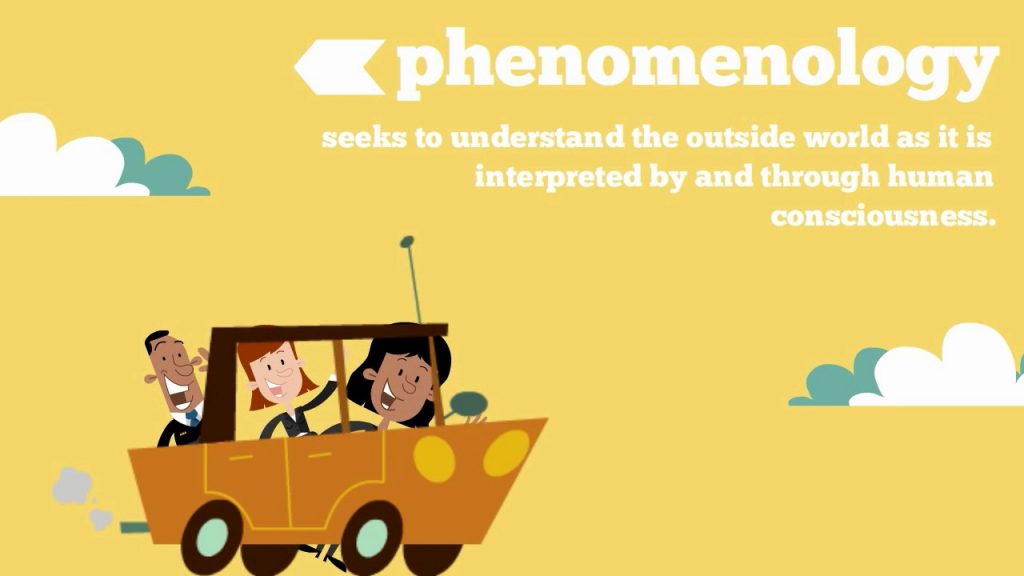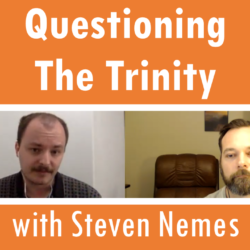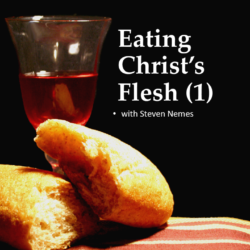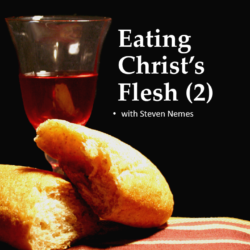
Steven Nemes adheres to a phenomenological approach to constructing Christian theology. This means that he doggedly insists on employing “natural” language to interpret scripture. Check out his explanation of how this hermeneutic works:
“Edmund Husserl in his early works emphasized that the only principle of inquiry is to talk about a thing as that thing demands. That’s the one method for any scientific inquiry whatsoever. If I’m going to do biology and I want to talk about living things then I have to confront living things in experience and I have to talk about them in a way that those things themselves demand. I can’t come with my prior conceptions and try to impose a template onto my experience to just conform everything to my theories. I have to allow my theories to be guided by the way things are themselves and the way they show themselves to me in experience.
We can say that the only canon, the only standard, in biology is living things themselves. That’s the standard for our inquiries. The only standard in astronomy are the stars themselves. We have to talk about the stars the way they are and not as the way we think they should be. So also if we’re talking about the interpretation of the New Testament, the New Testament itself is the standard for what we say about it. So we have to talk about the New Testament the way that the New Testament demands that we talk about it rather than the way that a certain tradition suggests that we should talk about it. Because the NT is what it is, and when I talk about it I want to be truthful, and that means talking about it as it is, not talking about it as other people say I should talk about it or whatever.
…It’s true that we have to have some tradition or other in order to read scripture, but our goal is to have that tradition which makes it possible for us to understand what scripture is saying. The only way to do that is to have all these traditions that exist out there in the world right now that are claiming continuity with scripture to prove themselves. You say you have the scriptural teaching. Ok. Provide an interpretation of the New Testament, which seems so natural that it could’ve come from Paul or Peter or John themselves. Try to come up with the way of interpreting the scripture that seems so natural that it would come from the author himself. This is how you prove yourself.
From the mere fact that you need a tradition to read scripture it doesn’t follow that I need your tradition. I want what the scriptures actually say and your tradition has to prove itself in comparison with others by providing an interpretation of scripture that seems natural. If you can’t do that then everything else you can say in your favor is irrelevant. Because what we are talking about here in doing theology is interpreting scripture.
Would you agree that this phenomenological hermeneutic ends up being, at least functionally, the same as restorationism? As restorationists, our goal is to recover authentic Christianity and live it out today. What does “authentic Christianity” mean? It means New Testament Christianity. It means we are thinking and living like the apostles thought and lived once they had the full canon of scripture available. Would you agree that Nemes ends in the same place as restorationism?
For more on restorationism, see The Restorationist Manifesto
For my interview with Steven Nemes, see podcast 477 Questioning the Trinity








All things being well, the phenomenological hermeneutic could well eventuate in the adoption of some form of Restorationism. However (often for a variety of socio-psychological reasons) the project of Christian Restorationism doesn’t universally result in an entirely, doctrinally homogenous body of believers (cf. The ‘Unitarian Christian Alliance’).
I think that part of the issue is that when the apostle Paul appeals for unanimity of Christian belief in 1 Cor. 1:10, he is talking about relatively simplistic, essential, doctrinal ‘fundamenta’ – which effectively amounts to the absolute, minimum amount of Christian doctrine which is necessary for belief in order to facilitate a person’s introduction into the Body of Christ (cf. 1 Cor. 12-13). Unfortunately, Christians have often badly confused, and mixed up, doctrinal ‘adiaphora’ with doctrinal ‘fundamenta’.
At the end of the day, we should all try and think for ourselves, as religion is to far too important to be left entirely in the hands of other people. God has given us all a brain, and we should, to the best our ability, honestly use it in the personal study of the Bible and Theology (circumstances permitting). Ultimately, let every person be persuaded in their own minds (cf. Romans 14:5) – and may God bless us, all.